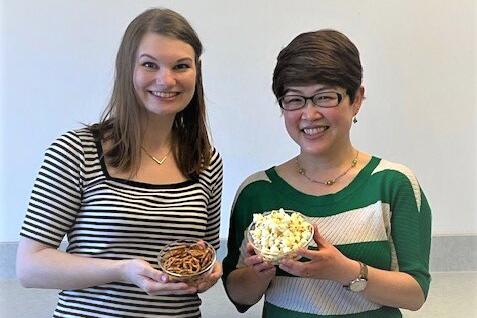University of Illinois research informs new sodium reduction database

URBANA, Ill. -- With growing concerns about sodium intake in North America amid the limited impact of public health campaigns, strategies for reducing sodium in the food supply are increasingly important.
Sodium has been flagged for decades as a nutrient of public health concern for overconsumption. But the functional roles of sodium in baking, preserving, thickening, curing and retaining moisture, all complicate reduction strategies.
The Institute for the Advancement of Food and Nutrition Sciences (IAFNS) has launched a new searchable database of over 280 scientific papers looks at flavor, functional and physical modifications to lower sodium intakes. It also includes information on combining methods.
The database is based on a review of scientific literature on sodium reduction strategies in food production conducted by University of Illinois Food Science and Human Nutrition researchers Aubrey Dunteman, Elle McKenzie, Ying Yang, Youngsoo Lee, and Soo-Yeun Lee with support from IAFNS. The researchers compiled a compendium of articles on sodium reduction techniques and methods.
The database includes evidence-based strategies for sodium reduction organized by specific categories relevant to the food sector. It has the potential to assist the food sector by decreasing risks posed by sodium overconsumption and offering information on replacements and removal.
“As far as we know this is one of the first strategic sodium reduction databases, geared towards food production available and one that will be updated annually to support this important public health effort,” IAFNS Senior Nutrition Program Manager Trish Zecca says.
IAFNS' intent with sharing this online and interactive format is to highlight the science that is available and the tools that are effective in maintaining acceptable sensory qualities for various food industry applications.
The database is available at the IAFNS website.
IAFNS is committed to leading positive change across the food and beverage ecosystem. The research was supported by IAFNS Sodium in Foods and Health Implications Committee. IAFNS is a 501(c)(3) science-focused nonprofit uniquely positioned to mobilize government, industry, and academia to drive, fund and lead actionable research.